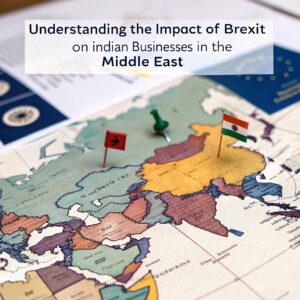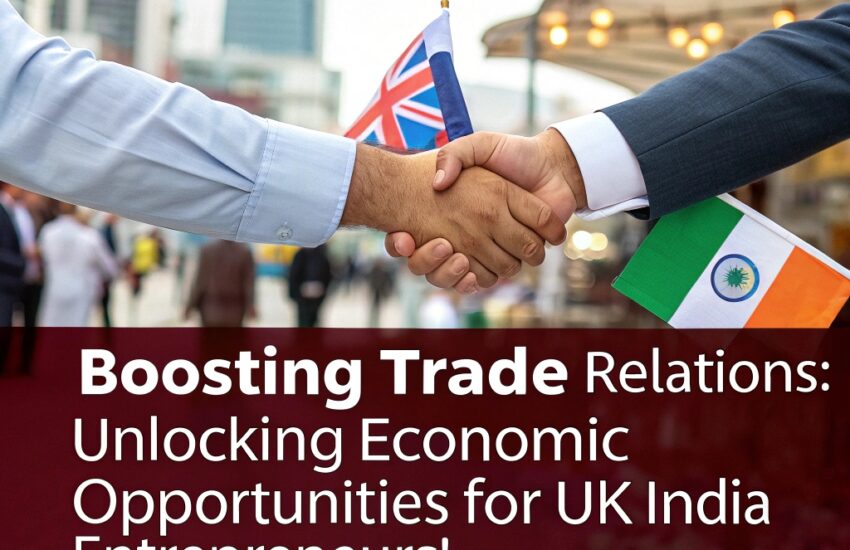As a budding entrepreneur in the UK, navigating international trade can be both thrilling and daunting. Building strong relationships with global partners is key to success.
But have you ever thought about tapping into one of the world’s fastest-growing economies – India?
The Gulf Cooperation Council (GCC) countries offer immense opportunities for business growth, but it requires a strategic approach that goes beyond just networking events.
By forging meaningful partnerships with Indian and GCC companies, UK-India entrepreneurs can unlock access to new markets, drive innovation, and stay ahead of the competition.
Let’s dive into the world of trade relations between India and GCC countries.
Identifying Key Business Areas of Interest
Think about this: For UK-India entrepreneurs looking to tap into economic opportunities with Gulf Cooperation Council (GCC) countries through strategic partnerships, identifying key business areas of interest is crucial.
When it comes to trade relations between these nations, a closer look reveals several promising sectors. One area that stands out is renewable energy. GCC countries are under pressure to reduce their carbon footprint, creating a demand for clean energy solutions. UK-India businesses can capitalize on this by offering innovative solar panel technology, smart grids, or sustainable water management systems.
Another key business area of interest lies in healthcare and life sciences. India’s strong pharmaceutical sector and the GCC’s growing need for medical equipment and supplies create opportunities for partnerships. Businesses can focus on developing vaccines, medical devices, or health IT solutions that cater to these markets.
Additionally, trade relations between UK-India and GCC countries also offer potential in logistics and supply chain management. With GCC countries’ strategic locations near key shipping lanes, businesses can explore optimized freight routes, real-time tracking systems, or customized packaging solutions for regional exports.
As such by exploring these business areas of interest you may be able to establish a strong foothold for future partnerships and unlock economic opportunities that could potentially help create new revenue streams.
Navigating Complex Regulatory Frameworks for Success
Successfully partnering across borders can be complicated by numerous regulations. When it comes to building trade relationships between UK-India entrepreneurs and GCC countries, understanding these intricate rules is vital to success.
To navigate complex regulatory frameworks successfully, familiarize yourself with the regulations of both your home country (UK) and the country you’re partnering with (GCC). This will give you a solid foundation on which to build your partnership. For instance, in India, exporters may need an Industrial License before importing goods from GCC countries, while UK businesses have different requirements.
Understanding India’s complex licensing system can save exporters a lot. There are specific industrial licenses for certain goods like machinery that cannot be used without them. Similarly, in the UAE (GCC), there are various types of permits required by each country or region when it comes to international trade. For example, you may need an export license if you want to ship goods from the UK to India.
To make navigating these complexities simpler for you and other entrepreneurs alike: let’s break down the different types of permits needed by UK businesses importing goods from UAE or GCC countries. This includes a Commercial Invoice Permit, which is necessary for all commercial shipments, as well as a customs permit that allows for free circulation within the country.
Understanding regulatory frameworks can be daunting, but knowing what types of licenses are required by your home and trading partner countries could be invaluable to navigating UK-India trade successfully through the GCC market. A key point to consider is how specific rules apply differently across countries.
Avoid generic discussions like “It’s crucial to comply with laws.” Instead, discuss how specific rules affect business operations. For instance, in India, exporters may need an Industrial License before importing goods from GCC while UK businesses have different requirements such as obtaining necessary import licenses or permits for Goods imports or exports
Understanding the Impact of Brexit on Indian Businesses in the Middle East
Disruptions from Brexit can affect Indian businesses operating in the Middle East, causing confusion and increasing complexity for exporters and importers. For instance, changes to customs duties on electronics could impact export procedures, while tax reforms might require importers to adjust their paperwork.
Specifically, new regulations regarding product labeling or certification may pose significant hurdles for companies trying to supply goods to GCC markets.
The exchange rate fluctuations caused by Brexit can also have a substantial impact on trade between India and the Middle East. A sudden devaluation of the Pound could lead to increased costs for importing goods such as machinery or equipment, making it difficult for businesses to maintain profitability. For instance, if an Indian company normally buys electronics from China at a fixed price per unit but has to pay a higher price in pounds due to currency fluctuations, they may struggle to remain competitive.

To mitigate these effects, companies need to be prepared and have contingency plans in place. This could include diversifying their supply chains or identifying alternative markets for goods that are sensitive to exchange rate changes. Furthermore, considering the specific challenges of Brexit-related trade disruptions can help businesses adapt and thrive in a changing market landscape.
How to Capitalize on Innovation Hub Opportunities in GCC Countries
The GCC region presents a vast array of lucrative business opportunities for UK-India entrepreneurs, but navigating these complex relationships requires strategic planning. Let’s explore the key to unlocking economic potential.
To begin with Saudi Arabia, where its government is actively investing in digital infrastructure as part of Vision 2030, India can offer expertise in software development and data analytics. For example, a recent study found that companies like IBM and Accenture are collaborating with Saudi Arabia’s Public Investment Fund (PIF) to develop cutting-edge technologies such as artificial intelligence and cybersecurity.
In contrast, the UAE’s business-friendly environment and low taxes make Dubai an attractive destination for startups. However, UK-India entrepreneurs may struggle with scaling up to meet local demands due to a lack of access to capital or networking opportunities. To bridge this gap, They can utilize existing innovation hubs in cities like Abu Dhabi or Ras Al Khaimah.
In Kuwait, the government is actively promoting entrepreneurship through initiatives such as the Kuwait Innovation Hub (KIH), which provides resources and support for startups. By building relationships within these ecosystems, UK-India entrepreneurs can gain valuable insights from experienced entrepreneurs and industry experts.
Furthermore, engaging with local communities that promote entrepreneurship and economic development can help foster meaningful partnerships. This approach allows for more targeted support to address areas where UK-Indian companies can make the greatest impact, such as women’s empowerment or environmental sustainability. For instance, a report by the Harvard Business Review highlights how international businesses can contribute significantly to sustainable practices in countries like Qatar.
To identify opportunities and tap into local demand, it is crucial to understand unique strengths and needs of each country involved. This might involve investing time in research reports from organizations such as Euromonitor International or Deloitte Middle East, which highlight GCC nations’ growing priorities in industries such as healthcare IT or renewable energy.
By taking a strategic approach that emphasizes the value proposition of UK-Indian companies, engaging with existing innovation hubs and networks, and collaborating with local communities, entrepreneurs can unlock growth and innovation opportunities in the region.
Strategies for Building Stronger Partnerships with Local Entrepreneurs
A thriving GCC market presents a vast economic opportunity for UK-India entrepreneurs seeking to tap into its wealth with strategic partnerships.
When it comes to forging successful partnerships, local knowledge is key. But how do you get started?
* Identify potential partners through research and networking events: The GCC region has seen several high-profile collaborations between the UAE’s Al Futtaim Group and Indian businesses, resulting in massive returns on investment.
Attend conferences or online forums for entrepreneurs in both countries to connect with like-minded individuals who can guide you through this complex market.
Understanding your target audience is crucial. What problems do they face? How can your product or service address those issues?
* Utilize platforms like LinkedIn and Twitter to share valuable insights, such as infographics highlighting industry pain points.
* Utilize social media to connect with potential partners on a personal level, sharing success stories of how you helped them overcome challenges.
Collaborate on joint projects and initiatives that align with your business goals. This could be anything from launching a new product together or sponsoring charitable events in the GCC region.
By working together towards common objectives, you can build trust and lay the foundation for future partnerships.
Foster open communication to ensure both parties are aligned:
* Be transparent about your own practices, expectations, and goals
* Actively listen to partners’ needs and concerns
With a well-executed strategy in place, UK-India entrepreneurs can tap into the GCC market looking for innovative solutions.
Creating Cultural Exchange Programs to Foster Business Growth
Creating effective cultural exchange programs is crucial for UK-India entrepreneurs seeking to tap into economic opportunities with GCC nations. This can be achieved through mentorship programs, business incubators/accelerators, and strategic partnerships.
A well-designed mentorship program would pair experienced UK-India entrepreneurs with skilled mentors in GCC countries. For instance, a British entrepreneur might learn about the intricacies of UAE’s thriving startup ecosystem, while an Emirati start-up founder gains insights into London’s innovation hotspots. This not only facilitates knowledge sharing but also fosters a sense of community and cooperation among participants.
Imagine being able to tap into a global market with a potential customer base of hundreds of millions. Strategic partnerships between UK-India businesses and GCC companies can make this dream a reality. For example, joint ventures in the renewable energy sector have proven successful, such as the collaboration between a UK-based solar panel manufacturer and an Emirati company that resulted in innovative solutions for desert ecosystems.
Business incubators or accelerators offer another way to facilitate cultural exchange. These programs provide resources and support for early-stage startups, enabling them to overcome common challenges and develop innovative products. For instance, a GCC start-up might benefit from mentorship on adapting its business model for the European market, while UK-India entrepreneurs gain insights into GCC’s thriving fintech industry.
The benefits of strategic partnerships are clear: they expand market reach, promote collaboration on research and development initiatives, and stimulate economic growth. By embracing this approach, UK-India entrepreneurs can unlock economic opportunities with GCC nations through successful collaborations that benefit everyone involved.
In the end, effective cultural exchange programs require a willingness to listen, learn, and adapt. This mindset not only fosters cooperation but also drives business growth in both directions – UK-India entrepreneurs gain valuable insights into the GCC market, while Emirati companies tap into the knowledge economy of their British counterparts.
Utilizing Digital Technology to Enhance Trade Relations

Unlocking Economic Opportunities in GCC Markets: Employ digital technology to overcome challenges
“Trade between UK-India entrepreneurs and GCC countries is not just about bridging geographical divides, it’s also about tapping into a massive market with over 1 billion potential customers. In fact, a recent study suggests that e-commerce is projected to reach $150 billion in revenue by 2025, with GCC countries being one of the primary drivers.”
As an experienced entrepreneur who has successfully utilized digital platforms to establish strong trade relationships with GCC countries, I can attest to the power of technology in breaking down barriers. One particular success story comes from a UK-based manufacturer who expanded its operations into Saudi Arabia using online marketplaces like Alibaba.
Digital platforms provide a seamless way for businesses to connect with each other across borders. LinkedIn and Twitter are ideal platforms for establishing an online presence, allowing you to increase brand visibility, attract new customers, and expand your network of potential clients, suppliers, and partners. For instance, a UK-based fashion brand created a strong LinkedIn profile showcasing its latest collections and collaborated with Saudi Arabian boutiques on sponsored content campaigns.
Online marketplaces like Alibaba or Made-in-GCC websites provide access to a vast pool of businesses looking for products or services from other regions. You can find manufacturers in the UAE offering high-quality electronics, distributors in Qatar providing logistics expertise, and wholesalers in Kuwait offering bulk quantities of consumer goods. The UK-India Free Trade Agreement (FTA) aims to reduce barriers to trade in goods, making trade easier and cheaper for UK exporters, while improving choice and value for UK consumers.
Digital technology also enables real-time communication between trade partners. This reduces transaction costs associated with traditional business methods like email exchanges or phone calls, making it more feasible to establish meaningful relationships. According to a study by the World Trade Organization, digital communication saves businesses around 20% in transaction time and cost.
Attend regional trade shows and conferences to network and stay informed about market trends:
* Set up social media accounts on platforms like LinkedIn or Twitter
* Identify relevant online marketplaces and directories (e.g., Alibaba, Made-in-GCC)
* Create engaging content to attract potential clients and suppliers
By doing so, you can establish strong trade relationships with GCC countries that were previously impossible due to geographical constraints or lack of resources. For example, a UK-based construction company used social media advertising to raise awareness about its services in the UAE and attracted several large contracts.
Managing and Mitigating Risks of Trading with Middle Eastern Businesses
The world’s fastest-growing economy, India, is set to boost its economic ties with Gulf Cooperation Council (GCC) countries. According to a recent report, bilateral trade between the two regions reached $50 billion in 2022 alone.
To tap into this lucrative market and navigate potential pitfalls, UK-India entrepreneurs must be aware of the unique challenges that come with trading with GCC businesses. This includes dealing with cultural norms that prioritize family ties and respect for authority figures. In one instance, a UK-India company successfully landed a major contract by building personal connections with key stakeholders in the GCC market.
A recent study revealed that non-compliance with local regulations can cost businesses up to 10% of their annual revenue. To avoid this financial penalty, it’s essential to familiarize yourself with local laws and regulations governing trade between countries, such as customs duties and tariffs. In one instance, a UK-India company was fined $100,000 due to improper documentation of export permits.
Effective communication is also vital in overcoming language barriers that can easily lead to miscommunication or misunderstandings. To overcome these obstacles:
- Hire a professional interpreter or use video conferencing tools that offer real-time translation.
- Prioritize clear, concise messaging using bullet points and numbered lists.
- Utilize social media analytics to predict changes in GCC consumer behavior and adapt your product offerings accordingly.
A balanced approach is key when engaging with Middle Eastern businesses. By understanding local customs and regulations, you can successfully navigate complex transactions that may seem like a Bollywood movie plot! To mitigate risks in trade with Middle Eastern businesses:
- Maintain a detailed record of agreements and contracts.
- Conduct thorough background checks on partners or suppliers.
- Establish a system for prompt dispute resolution.
By taking these steps, UK-India entrepreneurs can effectively minimize the risks associated with trading with GCC countries and maximize their chances of success in this crucial market. Properly mitigating potential risks will result in more efficient partnerships that lead to better business outcomes and greater access to new markets, increasing your capacity for expansion into other areas such as consumer goods or technology.
Understanding the Role of Women in GCC Economies and its Impact on UK India Trade Partnerships
Women’s perspectives in UK-India trade relations can be a game-changer, but only if we dive into the world of GCC economies. Take Saudi Arabia, for instance – its “National Vision 2030” project has been driven in large part by female-led initiatives that have propelled economic growth and innovation.
From Kuwait’s pioneering work on women entrepreneurship to Bahrain’s ambitious plans for a more gender-balanced workforce, these countries are leading the charge in creating inclusive economies. But it’s not just about quotas – research shows that when women hold key positions in decision-making bodies, trade agreements become more equitable and effective.
For UK-India entrepreneurs looking to tap into GCC markets, partnering with female-led businesses can be a major breakthrough. These businesswomen bring unique perspectives that challenge traditional approaches and drive innovation. For example, Qatari entrepreneur Fatima Al Sayed founded the “We Need to Talk About Abusive Relationships” campaign, using her platform to raise awareness about domestic violence in the Arab world.
By embracing diverse voices in trade negotiations, UK-India entrepreneurs can unlock new opportunities for growth and success. Women’s economic empowerment is no longer just a buzzword – it’s time to put action behind it.
Strategies for Building Trust with Local Stakeholders
Never underestimate the power of strategic partnerships in fostering trust between UK-India entrepreneurs and GCC countries. By building meaningful relationships, businesses can unlock new economic opportunities, drive growth, and create a more stable future.

The key is to establish open communication channels and demonstrate commitment to mutual understanding. This involves actively listening to concerns, addressing potential issues promptly, and showing appreciation for local stakeholders’ contributions. By doing so, entrepreneurs can build trust with their GCC counterparts and set the stage for successful collaborations.
Strategic partnerships also require a willingness to adapt and evolve. This means being open-minded about new ideas, flexible in response to changing circumstances, and proactive in addressing challenges that may arise.
By adopting these strategies, UK-India entrepreneurs can establish strong foundations for long-term economic growth with GCC countries. They can create a ripple effect of prosperity that benefits both parties and sets the stage for a prosperous future.
Take decisive action today to unlock new trade opportunities and build lasting partnerships, securing your position at the forefront of international business relationships.

